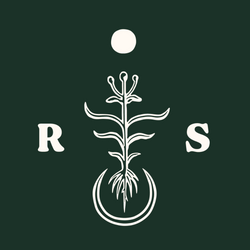In recent years, science has uncovered a profound link between the gut and the brain, shedding light on a fascinating and intricate connection that has far-reaching implications for our health and well-being. It turns out that the gut could be considered the "first brain," influencing not only our physical health but also our mental and emotional well-being. In this article, we will explore the intricacies of the gut-brain connection, how diet influences our gut health in unexpected ways, and how ancient traditions harnessed the power of mushrooms like Lion's Mane to support gut health.
The Gut: Our "First Brain"
The gut, also known as the gastrointestinal (GI) tract, is often referred to as the "second brain" due to its remarkable complexity and its role in influencing our mental and emotional states. However, some scientists and health experts argue that it could be considered the "first brain" because of its ancient evolutionary origins. The gut, with its intricate network of neurons, is capable of functioning independently, controlling digestion, and even playing a crucial role in our emotional responses and mood.
Diet and Gut Health
Diet plays a pivotal role in maintaining a healthy gut. The foods we consume directly impact the composition of our gut microbiome, which is a diverse community of microorganisms, including bacteria, that resides in our digestive system. A balanced diet rich in fiber, fruits, vegetables, and whole grains can promote a diverse and healthy gut microbiome.
On the flip side, a diet high in processed foods, sugars, and unhealthy fats can disrupt the balance of gut bacteria. This imbalance can lead to inflammation and various health issues, including irritable bowel syndrome (IBS), obesity, and even depression and anxiety.
Unexpectedly, the gut-brain connection means that what we eat can also affect our mental health. The gut produces neurotransmitters, such as serotonin, which play a crucial role in regulating mood. An unhealthy gut can lead to imbalances in these neurotransmitters, potentially contributing to mood disorders.
Ancient Wisdom: Lion's Mane and Gut Health
Ancient traditions from around the world recognized the importance of gut health and the role of certain natural remedies in maintaining it. One such remedy is Lion's Mane mushroom (Hericium erinaceus), known for its potential benefits for gut health.
Lion's Mane has been used in traditional Chinese and Japanese medicine for centuries. Research suggests that it may help support the gut by promoting the growth of beneficial gut bacteria. It contains compounds that have prebiotic properties, which means they nourish and support the growth of healthy gut bacteria.
In addition to its potential gut health benefits, Lion's Mane is also gaining attention for its potential cognitive benefits. It is believed to support nerve growth factor (NGF) production, which plays a role in maintaining and repairing brain cells. Thus, this natural remedy not only promotes gut health but may also contribute to mental clarity and cognitive function.
Conclusion
The gut-brain connection is a remarkable and intricate system that affects our overall well-being in unexpected ways. Our gut, often called the "second brain," influences not only our digestive health but also our mental and emotional states. Diet plays a pivotal role in maintaining a healthy gut, and the choices we make can impact not only our physical health but also our mental well-being.
Drawing from ancient traditions, we find that remedies like Lion's Mane mushroom have long been recognized for their potential to support gut health. As we continue to explore and understand this fascinating connection between our gut and brain, we gain insights into how we can optimize our health and well-being by nourishing our "first brain." Remember, a healthy gut means a healthier you, both physically and mentally.
image: from_threespiritdrinks.com/blogs/blog/why-we-use-lions-mane-mushroom

